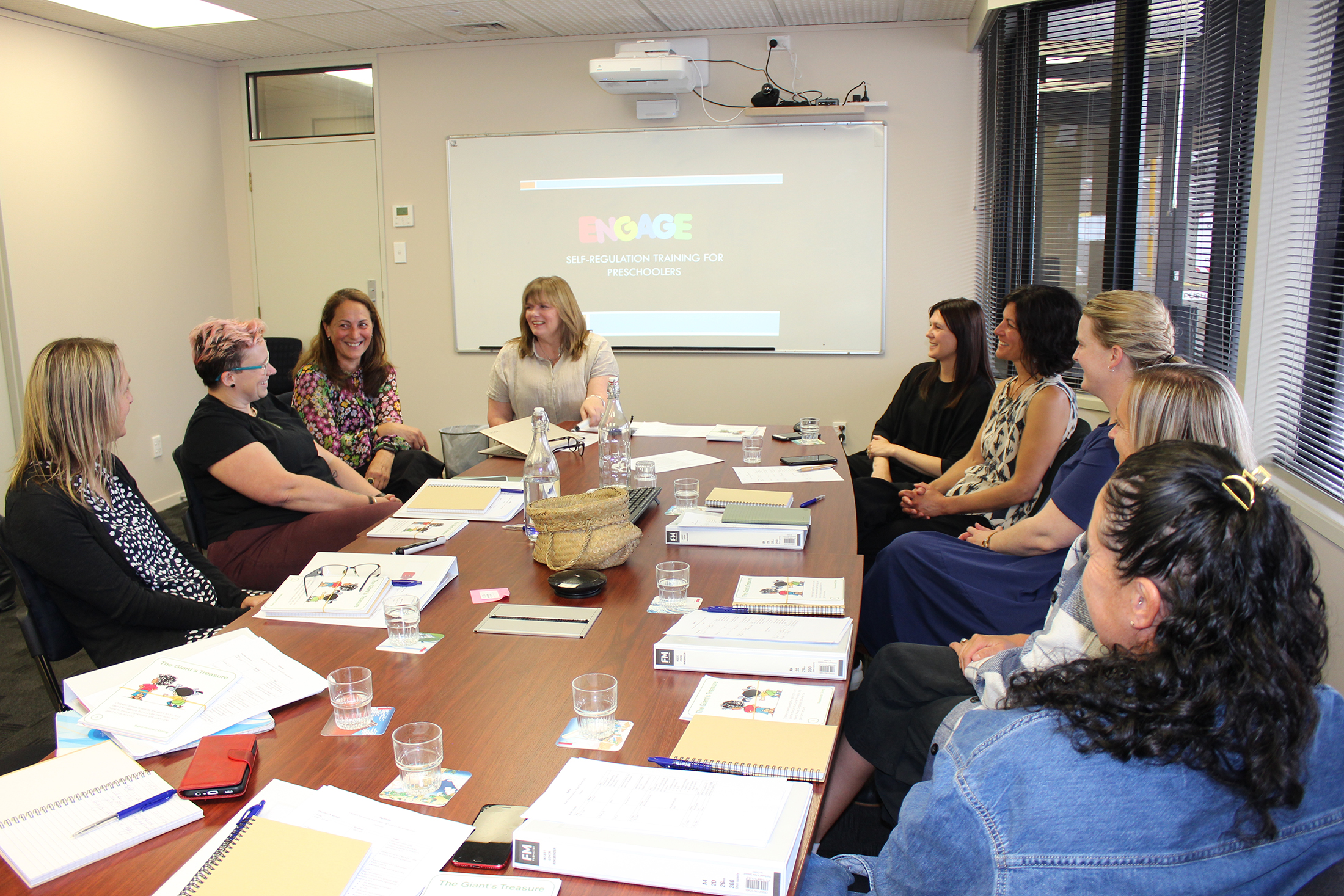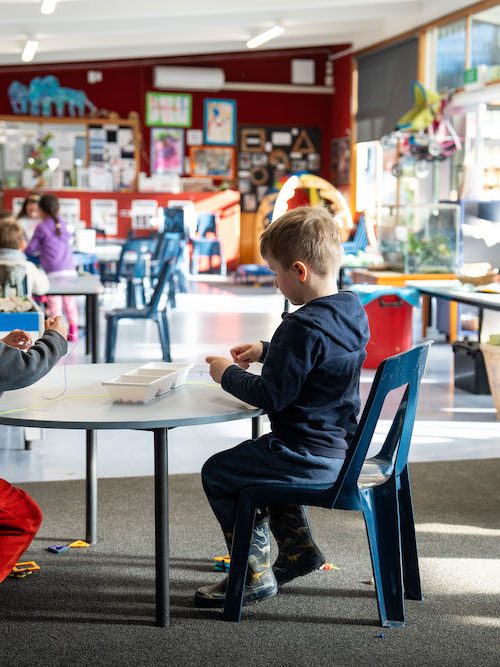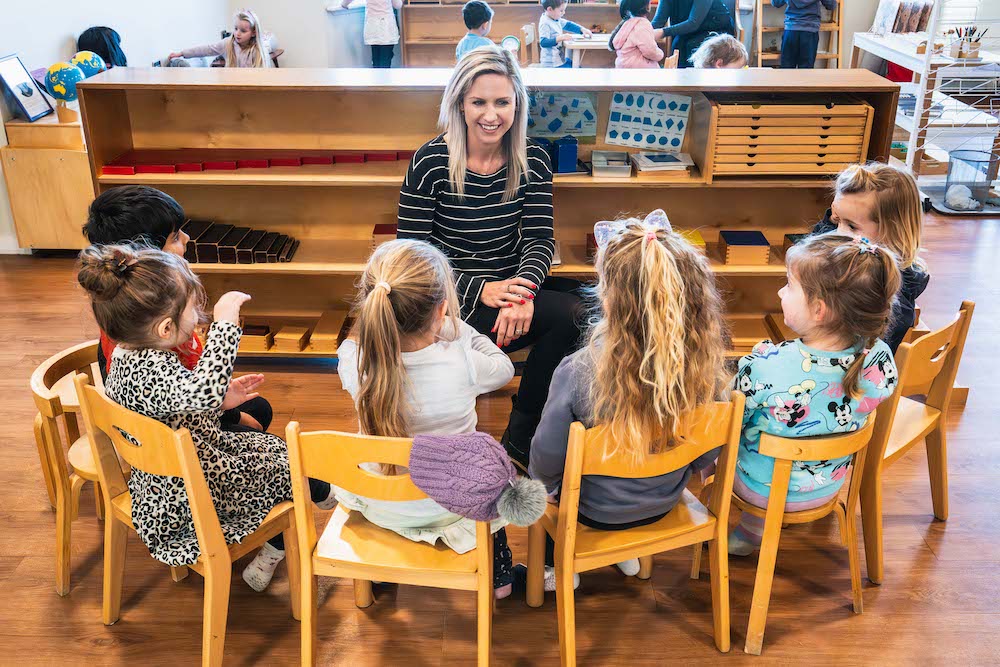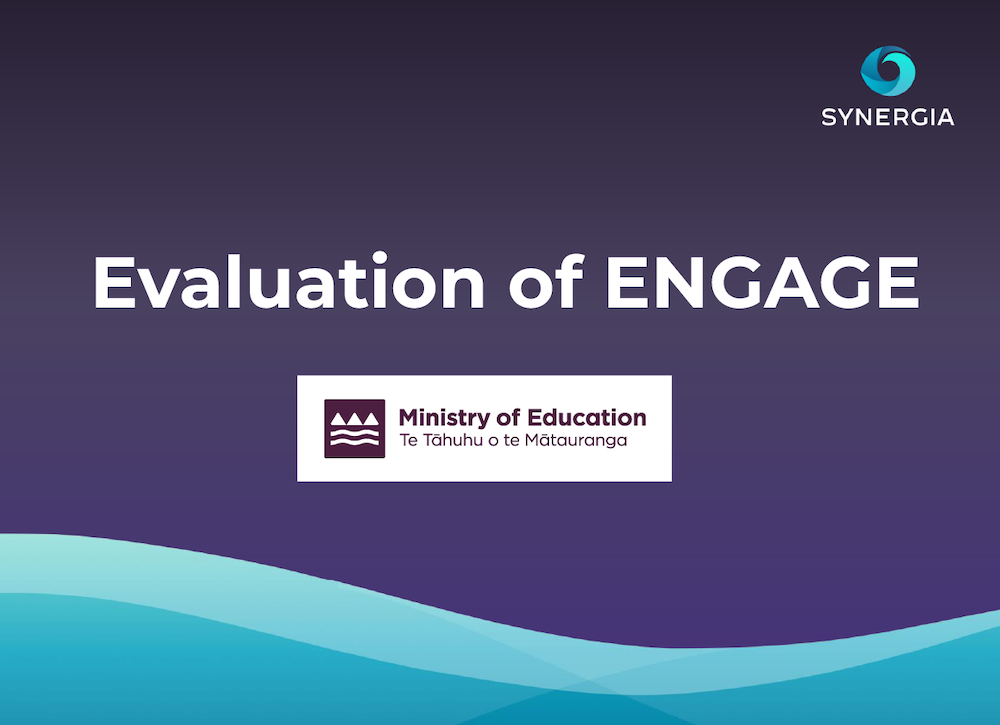
ENGAGE™ is Evidence-Based
The theory behind ENGAGE is borne out of decades of research into what self-regulation entails, possible causes of self-regulation difficulties in young children, as well as the links between self-regulation in early childhood and later life outcomes.
Research highlights that less well developed self-regulation skills in childhood are linked to poorer life outcomes across several areas. Children who struggle with self-regulation are more likely to face academic difficulties, including lower grades and disengagement from learning. These issues often persist into adulthood, leading to lower educational attainment, poorer job prospects and reduced income potential.
Additionally, difficulties in managing emotions and behaviour are associated with higher rates of mental health issues, social challenges and risky behaviours like substance abuse and criminal activity.
ENGAGE Research Outcomes
New Zealand
To date there are three published research trials of ENGAGE used in New Zealand. Two focused on the use of ENGAGE within the home setting and one focused on the use of ENGAGE within the early childhood education setting.
01
Healey, D.M. & Halperin, J.M (2014)
Enhancing Neurobehavioral Gains with the Aid of Games and Exercise (ENGAGE): Initial open trial of a novel early intervention fostering the development of preschoolers’ self-regulation, Child Neuropsychology: A Journal on Normal and Abnormal Development in Childhood and Adolescence, DOI: 10.1080/09297049.2014.906567
Article Abstract
Poor self-regulation during the preschool years predicts a wide array of adverse
adult outcomes and, as such, is an important treatment target. We assessed the efficacy of a novel early intervention aimed at fostering the development of preschoolers’ self-regulation. Enhancing Neurobehavioral Gains with the Aid of Games and Exercise (ENGAGE) involves parents and children playing a wide range of games targeting self-regulation on a daily basis over a 5-week period. Twenty-five New Zealand families, in whom parents identified their children as difficult to manage, took part in this study. Parent hyperactivity, aggression, and attention problems ratings on the BASC-2 were used to assess improvements in behavioural self-regulation, and subtests of the Stanford Binet-5 and NEPSY-2 were used to assess improvements in cognitive control. Improvements in parent-rated hyperactivity, aggression, and attention problems were maintained throughout the 12-month follow-up. In addition, improvements were found in two neurocognitive areas associated with self-regulation. While more rigorous randomised controlled trials are necessary, ENGAGE shows promise as a novel intervention for developing self-regulation in at-risk preschoolers.

02
Healey, D.M., & Healey, M.D. (2019)
Randomised Controlled Trial comparing the effectiveness of structured-play (ENGAGE) and behaviour management (TRIPLE P) in reducing problem behaviours in pre-schoolers. Scientific Reports, 9, 1-9. Available free online.
Article Abstract
Children’s behaviour problems are a growing concern in our society; and are associated with a wide array of adverse lifespan outcomes.
Current treatments are not without limitations and while effective for many, do not help all children. As such, additional treatment options are required. Sixty families of children aged 3 and 4 years participated. In order to participate, children needed to have a T-score of 60 or above on the parent rated Hyperactivity subscale on the BASC-2. Families were randomly assigned to either a structured play-based intervention (ENGAGE; n = 29), or to the current gold standard treatment for preschool behaviour problems, behavior management (Triple P; n = 31). This trial has been registered with the Australian New Zealand Clinical Trials Registry (ANZCTR); trial number ACTRN12617001432303; trial web address; date registered; 10/10/2017. ENGAGE was found to be as effective as Triple P in reducing parent-rated problem behaviours in pre-schoolers (i.e., Hyperactivity, Attention Problems, and Aggression); with gains maintained over a 12-month follow-up period, for both interventions. These findings indicate that structured play is an equally effective alternative way to manage difficult behaviour in preschoolers and compliments our current treatment options.

03
Healey, D.M., Milne, B., & Healey, M.D. (2022)
Adaption and implementation of the ENGAGE programme, teaching self-regulation through play, within the early childhood curriculum. Available online.
Article Abstract
Self-regulation is essential for successful human functioning across the lifespan. Difficulties in self-regulation early in life have been associated
with a wide array of adverse outcomes including difficulties with school transition, educational attainment, and social functioning in childhood, as well as employment, mental health, physical health, relationships, and criminal activity in adulthood. ENGAGE (Enhancing Neurobehavioural Gains with the Aid of Games and Exercise) is a play-based intervention fostering the development of self-regulation in pre-schoolers and has led to improvements when used within the home setting. Given that most children attend some form of early childhood education setting, this is an ideal environment in which to teach self-regulation. The aim for this study was to ascertain whether ENGAGE can be implemented within an ECE group setting and whether this also leads to improved self-regulation. This trial has been registered with the Australian New Zealand Clinical Trials Registry (ANZCTR); trial number ACTRN12622000364774; trial web address. 668 children aged 3-5 years and their teachers, across 28 Early Childhood Education Centres (ECE) participated. Children’s self-regulation skills were assessed via scores on the Hyperactivity, Aggression, and Attention Problems subscales of BASC-2. Results indicated no significant changes in self-regulation skills across a 10-week waitlist period. Following 10 weeks of the ENGAGE programme, significant improvements in self-regulation were reported, and these were maintained at 2- and 6-month follow-ups. These findings indicate that ENGAGE translates well into the ECE setting and has the potential to have population-based impacts on self-regulation abilities which could lead to more positive societal outcomes.

04
Synergia Evaluation Report Prepared for Ministry of Education (February 2025)
Research Report Finds that ENGAGE Empowers Tamariki and Strengthens Communities:
“Significant positive impacts on tamariki, kaiako, and whānau, demonstrating improved self-regulation skills among children, enhanced professional practices for educators, and strengthened whānau engagement. The programme’s structured, play-based approach has proven effective across diverse early learning environments, underscoring the importance of continued investment in professional development, cultural sensitivity, and inclusive strategies.” Full report available online.

05
Supporting Teaching and Learning in Home-Based Early Childhood Education
ENGAGE has also been used as part of a study with home-based carers who used three different early intervention programmes within the study. While the results of this study have not yet been published a summary report is available.

Finland
Finnish researchers Liisa Klenberg and Vesa Närhi travelled to New Zealand to be trained by Dione Healey in the facilitation of the parent-led version of the ENGAGE programme. They translated the manual and materials into Finnish and trained additional researchers in the programme facilitation. Their findings were in line with those of Healey & colleagues’ results in New Zealand.


06
Klenberg, L., Teivaanmäki, S., Närhi, V., Kiuru, N., & Healey, D. (2023).
Effectiveness of ENGAGE in reducing difficulties in everyday executive functions among Finnish preschoolers: A randomized controlled trial. Child Neuropsychology, 29(8), 1341-1361. DOI: 10.1080/09297049.2022.2164568
Abstract
Objective: Effective interventions applicable for young preschool-age children are needed to reduce the risk of
widespread and sustained adversities that are linked to early executive function (EF) difficulties. This randomized controlled trial aimed at examining the effectiveness of the play-based ENGAGE intervention in improving EFs, manifest as improved behavioural outcomes, among Finnish preschool-age children with problems in EFs.
Method: 95 children between 4 and 5 years of age and their parents were randomly assigned to the ENGAGE intervention or a waitlist control group. Parents and early childhood education (ECE) teachers assessed the children’s behaviour problems and EF difficulties at pre-intervention, post-intervention, and 5-month follow-up. Repeated measures linear mixed modelling was used to examine the effect of ENGAGE on child outcomes.
Results: Those receiving ENGAGE exhibited significantly greater decreases in parent-rated attentional problems, hyperactivity/impulsivity, and acting out behaviours than the control group did, with mostly moderate effect sizes. No consistent improvements in the teacher ratings of children’s EFs were found in either group. Low dropout (8%) from the intervention and high acceptability ratings indicated that ENGAGE is a palatable intervention for parents.
Conclusions: The results show that ENGAGE effectively reduces young children’s EF-related problem behaviours in the home context. Furthermore, the present study showed that findings from an earlier RCT conducted in New Zealand could be generalized to a different cultural setting. Extending ENGAGE and other play-based interventions into different everyday contexts of children, such as ECE, could further enhance the beneficial effects on children’s EFs and behaviour.
